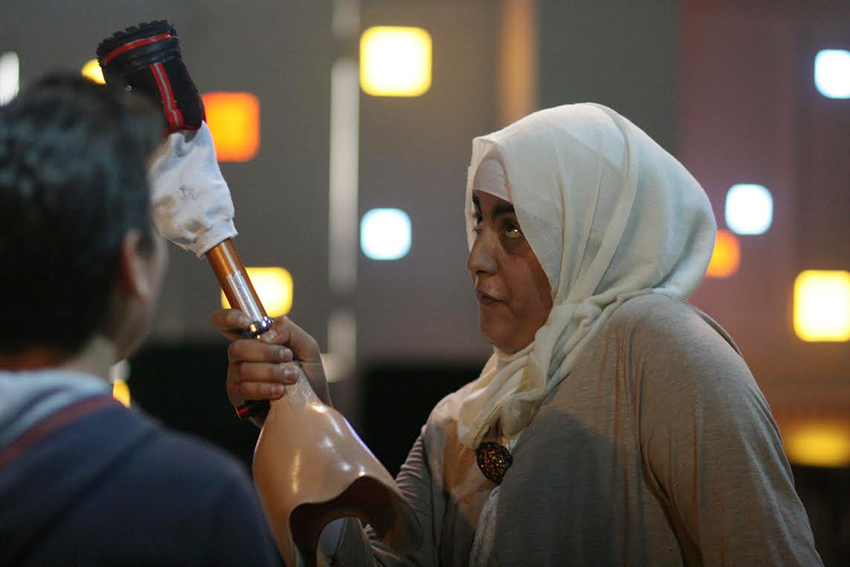UT Ph.D. candidate Bart Pitchford is raising money to research how Syrians living in the Zaatari Refugee Camp in Jordan use theater performance to help rebuild their community and identity.
The Zaatari Camp was established in 2012 to host some of the 7.6 million displaced Syrians fleeing ongoing civil war violence in their country. The camp currently holds just under 80,000 refugees, according to the UN Refugee Agency.
Pitchford, a war veteran, was deployed in an Army psychological operations division to Iraq, Pakistan and Yemen, where he helped develop theater programs that addressed issues about social justice. He hopes to raise enough money to finance his research using a UT HornRaiser page. Pitchford hopes to go to Jordan this weekend and stay until the end of May to research theater performances in the Zaatari Refugee Camp, where at any given moment over a half-dozen theater projects are in rehearsal or in play.
Theater is suited to populations where political rights have been lost or denied, and can be used to reimagine citizenship in a way that supports refugee’s political and social rights, according to Pitchford.
“Theater becomes a safe space, and allows you to imagine different possibilities about how life can exist,” Pitchford said. “When we do performances, we are usually looking at slices of life that present things that
concern us.”
Pitchford hopes to document theater performances so they can be discussed — so the voices of Syrian refugees may be heard.
Performances can also act as a method of protest for refugees as they seek citizenship, according to Paul Bonin-Rodriguez, an assistant professor of theater and dance.
“If you consider that the suffering experienced by those displaced and disempowered is physical and psychical in nature, then you can see that theater programs respond to the circumstances of suffering,” Bonin-Rodriguez said in an email.
Zaatari is becoming a permanent settlement as some refugees having lived there for more than two years. Now, the UN is working with global non-profit organizations and corporations to brainstorm ways to develop this small area into a sustainable city.
Pitchford said Syrian refugees developing a sense of community through theater will only draw them closer to this self-sufficiency.
Kira Stein, a biology and theater and dance junior, also appreciates the potential of theater performance to bring people together.
“Fine arts give me a sense of belonging and community,” Stein said. “I get to connect with others from different backgrounds who share a passion for the same art form.”





















